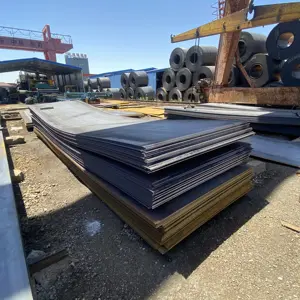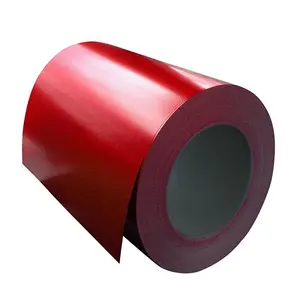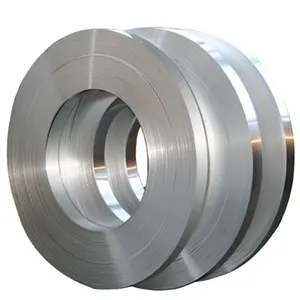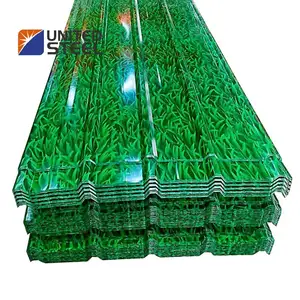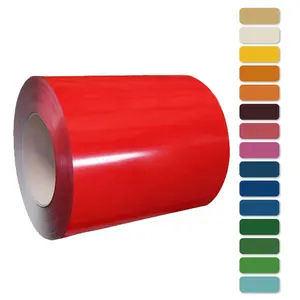Popular in your industry
































































Related Searches:











































































































































Top categories
About laminated soft iron core
What is Soft Iron Core For Laminating
Soft Iron Core for Laminating is a specialized material designed to be used in the manufacture of electrical transformers and inductors, which are crucial components in the power distribution and electrical systems. These cores are made from a specific type of iron that has been engineered to have low hysteresis, which allows them to effectively concentrate and transmit magnetic fields. The soft iron core is an essential part for professionals in the electrical and electronics industries, particularly for those who design and build equipment for power generation, transmission, and distribution.
The core serves the vital function of providing a path for the magnetic field lines to follow when an alternating current passes through the coil. It must be constructed from a material that responds minimally to the magnetic field's influence—hence the term soft. This is important because a core that is too hard would require a higher magnetizing force, leading to increased energy loss and potentially affecting the accuracy of measurements. Soft cores also offer a high saturation flux density, which means they can carry a large amount of magnetic flux per unit area before reaching magnetic saturation, making them efficient at transferring energy within a transformer.
In summary, Soft Iron Cores for Laminating are critical components in the production of transformers and inductors. They are designed for professionals who require high precision and efficiency in their work, such as electrical engineers, technicians, and manufacturers of electrical equipment. The cores work by providing a low reluctance path for the magnetic field generated by the coil to pass through, which allows for effective magnetic induction and thus the transfer of energy.
Types of Soft Iron Core for Laminating
The selection of soft iron cores for laminating is vast, with each type offering distinct advantages and use cases:
-
CRNGO (Cold Rolled Non-grain-oriented) Steel Core: This type of core is popular due to its excellent magnetic properties and low core losses. It's commonly used in applications like transformers and generators where efficiency is crucial.
-
HRNGO (Hot Rolled Non-grain-oriented) Steel Core: With slightly higher core losses than CRNGO, HRNGO is often used in applications where efficiency is not the primary concern, such as in motor cores or industrial chokes.
-
GO (Grain-oriented) Steel Core: This type offers very low core losses and is used where high efficiency is required, such as in large power transformers.
-
NGO (Non-grain-oriented) Steel Core: Typically featuring higher core losses than GO and CRNGO types, NGO cores are suitable for applications where cost is a significant factor and efficiency is less critical.
-
LNGO (Laser Non-grain-oriented) Steel Core: Characterized by even lower core losses than GO and CRNGO types, LNGO cores are used in premium applications such as high-efficiency motors or advanced power supplies.
Each type has specific properties that make it suitable for particular use cases, such as where high efficiency is required or when a large core with significant weight savings is desired.
How to choose Soft Iron Core For Laminating
Selecting the right Soft Iron Core for Laminating involves considering the specific needs of your project or product. Here are some key factors to keep in mind:
-
Material Composition: Soft Iron Cores are typically made from pure iron or low carbon steel. Depending on the required magnetic properties and performance characteristics, you may need a core with specific compositions.
-
Core Type: The type of core you choose should align with your application's needs. For instance, if you require a core that can withstand high temperatures, you might opt for a type designed for power transformers.
-
Size and Shape: Ensure that the size and shape of the core match your dimensional requirements. Some applications may call for custom shapes or specific dimensions.
-
Application: Consider what the core will be used for—whether it's for electrical motors, generators, or other devices—and select a type that offers optimal performance in that application.
By taking into account these considerations alongside Alibaba.com's vast selection of Soft Iron Cores, businesses can find the appropriate core material that meets their operational needs effectively.
About Soft Iron Core For Laminating on Alibaba.com
For businesses seeking reliable and efficient solutions for their magnetic shielding needs, Alibaba.com stands out as an exceptional marketplace. The platform offers an extensive selection of soft iron cores that cater to various industrial applications such as inductive proximity sensors, RFID systems, and power transformers. Customers can trust Alibaba.com not only for sourcing materials but also for connecting with reputable suppliers from around the globe.
Alibaba.com simplifies the procurement process by providing tools that assist buyers in finding exactly what they need among a vast array of products. The platform's user-generated content system allows buyers to explore different options while engaging with suppliers who offer customized solutions. This flexibility is particularly beneficial when off-the-shelf products do not meet specific project requirements.
Moreover, Alibaba.com's commitment to fostering secure transactions through services like Trade Assurance instills confidence among buyers about their purchases. The site's multilingual support and mobile-friendly features further enhance the buying experience by catering to international business needs effectively. When sourcing soft iron cores for laminating applications through Alibaba.com, businesses gain access not only to high-quality materials but also to an efficient purchasing process tailored to B2B sales.
Common FAQs for Soft Iron Core For Laminating
What is the primary use of a soft iron core in magnetic applications?
Soft iron cores are primarily used in magnetic applications to enhance the performance of inductors and transformers by concentrating magnetic fields, which results in improved efficiency and sensitivity.
How do soft iron cores contribute to the efficiency of magnetic circuits?
Due to their high magnetic permeability and low coercivity, soft iron cores allow magnetic fields to pass through with minimal losses, thus increasing the efficiency of the associated circuit or transformer.
Can soft iron cores be customized to specific shapes or sizes?
Yes, suppliers can often customize soft iron cores to meet specific shape and size requirements for unique applications.
What are the advantages of using laminated soft iron cores?
Laminated soft iron cores offer reduced eddy current losses, which can improve the efficiency of magnetic circuits and ensure that the magnetic field is concentrated where it is needed.
How do I choose the correct size of a soft iron core for my application?
Selecting the correct size of a soft iron core involves understanding the dimensions of the core and the space in which it will be installed, as well as the required magnetic characteristics for your application.
Are there specific types of soft iron cores recommended for power applications?
Yes, for power applications such as transformers and chokes, it is recommended to use soft iron cores due to their high saturation flux density and low core losses.
How does temperature affect the performance of soft iron cores?
Temperature can alter the magnetic properties of soft iron cores, with some losing magnetic strength at higher temperatures, which may be a concern in certain applications.
What is the difference between a soft iron core and a laminated soft iron core?
A laminated soft iron core consists of thin sheets of soft iron assembled together to minimize eddy current losses, while a non-laminated soft iron core is a solid piece of soft magnet material.
Can soft iron cores be used in high-frequency applications?
Yes, soft iron cores are suitable for high-frequency applications due to their excellent magnetic properties and low eddy current losses.
Are there industry standards for soft iron cores that I should be aware of?
While there may not be universal industry standards for soft iron cores, it is important to understand the application's requirements and ensure that the selected core meets those needs.
What should I consider when choosing a soft iron core for a transformer?
Key factors include the operating frequency, magnetic permeability, core shape, size, and the material's compatibility with the intended application when choosing a soft iron core.
How do I know if a soft iron core will work with my existing setup?
Compatibility can be assessed by comparing the specifications of the core with your setup, especially with regard to size, shape, magnetic properties, and temperature tolerance.
